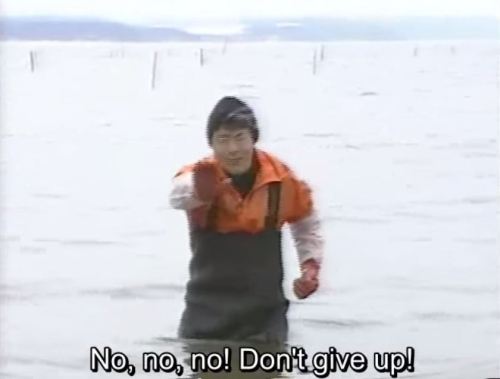Littlelanguagefox - THE LITTLE LANGUAGE FOX

More Posts from Littlelanguagefox and Others
ah yes, my favourite foreign language feel, “I know what all of those words mean individually but not together like that”

181218 // thank you for your endless love and everlasting gift of music. let’s meet again soon.






A common mistake English speakers make in learning a new language is translating every word in English literally. By extension, this also involves translating whole sentences word for word.
This is a wee (actually, not that wee) problem for a few reasons:
It means that you will be translating words that don’t have an equivalent in the target language.
It means that you’ll be losing the chance to use words in the target language that don’t have an English translation (advanced vocab).
You’ll be ignoring vital stylistic elements of speaking/writing in the target language. You’ll end up saying things that native speakers of the target language just don’t ever say, even if you use correct grammar and vocabulary.
Now, if you don’t get the hang of this in your target language, I repeat, do not panic. This process of getting the feel of your target language and familiarising yourself with advanced vocab words comes only with practice. It’s not possible to just learn off every rule/word/stylistic element in your target language.
Allow me to illustrate these issues using Spanish and French:
1. Translating words that don’t have an exact equivalent in the target language. Not every word in English has the exact translation in another language, thus a phrase or supplemental synonym is used to convey the meaning in context.
“I think I forgot to lock the door”. In Spanish, this is Pensé que olvidé cerrar la puerta con llave. Pay attention to the phrase for lock. There isn’t a single verb to convey the idea of locking a door. You just say that you close it with the key.
“I want to pass this test on the first try”. In French, this is Je voudrais réussir l'examen au premier essai. We use the word essai to indicate attempt or try, even though this word generally means essay in most other contexts.
2. Not using target language-specific words that don’t exist in English. Some words just don’t exist in English- don’t miss out the chance to use them in another language though! (this is basically the opposite of #1) It indicates a better grasp of the language, comparable to that of natives.
“Last night, I hardly got any sleep because I was anxious”. In Spanish, instead of directly translating the phrase “I hardly got any sleep”, you can use the word desvelado, which covers the entire concept of being unable to sleep. Anoche, estuve desvelado ya que estaba ansioso. In French, you’d say J’ai eu une nuit blanche hier car j’étais anxieux.
“Although we are poor, we can manage with what we have”. In French, you’d never directly translate the word manage, but instead, you’d say Bien qu'on soit pauvre, on peut se débrouiller avec ce qu’on a. The verb se débrouiller expresses the entire concept of being able to get by and survive day by day with next to nothing.
3. The stylistic element. These are just manners of speaking that native speakers use, which includes sentences structures and word order, or even just expressions of choice that would be clunky in English.
In French, let’s say someone asks you, “Est-ce que tu ne voudrais pas une verre de l'eau avec ça?”. This means “Don’t you want a glass of water with that?”. The food is hot and spicy, so of course you’re thirsty. The first thing that comes to mind is to say, “Mais, oui!”. However, that’s not what is said. It’s not that the grammar or word choice is wrong, but generally, after agreeing with a negative sentence, si is used. You would respond, “Mais, si! J'ai soif!”.
In French, they throw in “ça” everywhere, just for emphasis. “Ça, c'est horrible!”, “Ce robe, ça, c'est très belle!”.
Word choice. Instead of saying “Going to this meeting is important”, one would say something akin to “The attendance of this meeting is vital”. “L'assiduité de la réunion, c'est d'une importance capital”. This is kinda why people like to say French is haughty and pretensive (je t'aime, ma petite langue). Nonetheless, this is more common in formal speech.
In Spanish, what comes to mind at first is the order of subjects and verbs. It’s rather common to hear the subject come after the verb(s), all the way at the end of the sentence. A mí madre matarón los narcotraficantes. El tango baila María todos los fines de la semana.
The word “lo” can precede an arbitrary noun. The normal thing to do is lo normal. The good thing is lo bueno. The physical thing is lo físico, and the sexy thing is lo sensual. You will rarely hear someone say “la buena cosa”.
So, how do you improve your grasp of a language? Well, listening to natives speak is definitely one way. You don’t need to visit the country or anything, but maybe get a pen pal, Tumblr friend and ofc, watch and read the news in your target language. Also, immerse yourself in books, movies, TV shows and music. Finally, practice writing and get a teacher or a native to check your work.
Korean interrogatives:
뭐- what
어디- where
누구- who
언제- when
왜- why
어떻게- how
몇- how many
얼마- how much
얼마나- how long
hey you!! stop for a second!!! think of all the things you have accomplished today!! you woke up?? fucking superb!! washed your face? i’m proud of you!!! what did you do this week??? walked your dog?? they are so lucky to have you!! made yourself a meal??? you are doing amazing!! remember that life mostly consists of small things, not big ones, and you need to learn to cherish them!! play your favorite song!! do your homework!!! water your plants!! throw away the trash!! put away the clothes you’ve been piling on that chair!!! drink some water!!! you can’t do the big things without doing the small ones as well!!!!

This is a post about masterposts about resources and books for studying many languages. I made this since many people do not know about all the resources that have been posted.
Resources for Many Languages: thelanguagecommunity
General
Language Pile
Free Online Language Courses
Massive Language Resource
Language and Linguistics
Linguistics Resources on 88+ Phyla and Lang Isolates by Neby
Language Families/Groups
West African Languages
Classics Resource Masterpost
Latin & Greek Masterpost
Celtic Languages Resources
Celtic Family Masterpost
Dutch, Afrikaans, West Frisian, Limburgish
Finno-Ugric Masterpost
Finnish, Estonian, Saami, Voro
Germanic Languages Resources
Scandinavian Language Resources
North Germanic Languages
South Asian Languages Resources
Alien Languages of Star Trek
Afrikaans
Learn Afrikaans Masterpost
Afrikaans Resources
Ainu
Ainu Resources
Albanian
Albanian Resources
Amharic
Amharic Resources
Amharic Movies & Shows
Arabic
Arabic Learning Resources
Arabic Language Resources
Arabic Language Apps
Moroccan Masterpost
Free Arabic Resources
Armenian
Armenian Language Masterpost
ASL
American Sign Language Masterpost
ASL Masterpost
Azerbaijani
Azerbaijani Resources
Belarusian
Belarusian Masterpost
Belarusian Resources
Basque
Basque Resource List
Bengali
Bengali Masterpost
Bosnian-Croatian-Serbian
Resources
Bulgarian
Bulgarian Resources
Catalan
Catalan Masterpost
Catalan Resources
Resources to Lean Catalan
Catalan Resources
Cantonese
Cantonese Resources
Mandarin Chinese
Mandarin Chinese Masterpost
Chinese Language Resources I
Chinese Language Resources II
Pinyin Masterpost
Intermediate Chinese Resources
Ultimate Mandarin List
Cornish
Cornish Language Masterpost
Crimean Tatar
Crimean Tatar Resources
Czech
Czech Resources for Beginners
Czech Masterpost
Danish
Danish Masterpost
Dutch
Dutch Resources
Dutch Masterpost
Dutch Resources
English
English Online Courses
English Resource Masterpost
Estonian
Intermediate Estonian Resources
Euskera
Euskera Resources
Faroese
Faroese Resources
Finnish
Masterlist of Finnish Resources
Finnish Resources
Finnish Beginner Resources
Finnish Learning Resources
Finnish Language Resources
French
French Resources
French Resource Masterpost
French Masterpost
Intermediate Resources
Galician
Galician Resources
Free Galician Masterpost
Georgian
Georgian Language Masterpost
German
German Learning Tools
German Resources
German Resources
German Resources
German Sites
Gothic
Gothic Language Masterpost
Greek
Greek Masterpost
Ancient Greek Masterpost
Ancient Greek Resources
Greenlandic
Greenlandic Resources
Guarani
Guarani Masterpost
Hawaiian
Learn Hawaiian
Hebrew
Hebrew Language Masterpost
Hebrew Masterpost
Hindi
Hindi Language Masterpost
Hindi Audio & Video
Hungarian
Hungarian Masterpost
Hungarian Learning Resources
Hungarian Resources
Icelandic
Icelandic for Everyone
Icelandic Resources
Icelandic Masterpost
Indonesian
Indonesian Resources
Italian
How to Learn Italian
Italian Resources
Italian Masterpost
Italian Resource Masterlist
Italian Culture Masterpost
Irish
Irish Resources
Irish Masterpost
Japanese
Free Japanese Resources
Japanese Resources
Studying Japanese
Japanese Resource Masterpost
Japanese Language Learning Resources
Kannada
Kannada Resources
Kazakh
Kazakh Masterpost
Khmer
Khmer Language Masterpost
Kikongo
Free Kikongo Resources
Korean
Korean Textbook Masterpost
Korean Resources
Korean Resource Masterpost
Korean Language Masterpost
Ultimate Korean Masterpost
Kyrgyz
Kyrgyz Resources
Latin
Learning Latin
Latin Resource List
Masterpost of Latin Video Resources
Latin Resources
Lithuanian
Lithuanian Resource List
Malay
Malay Resources
Maltese
Maltese Resources
Mongolian
Mongolian Resources
Nahuatl
Nahuatl Language Masterpost
Nepali
Nepali Masterpost
Norwegian
Norwegian Masterpost
Norwegian Resources
Norwegian Sources
Norwegian Masteprost
Norwegian Masterposts
Occitan
Occitan Resources
Old Church Slavonic
Resources
Pashto
Pashto Masterpost
Persian
Persian Language Masterpost
Polish
Polish Masterpost
Polish Self-Study Masterpost
Polish Resources
Polish Resource List
Portuguese
Portuguese Resources
Portuguese Resource Masterpost
Portuguese Starter Pack
Portuguese Resources
Punjabi
Punjabi Masterpost
Punjabi Resources
Romanian
Romanian Resources
Romanian Learning Resources
Useful Romanian Resources
Romanian Masterpost
Romanian Resources
Russian
Russian Learning Tools
Russian Textbooks
Some More Resources
Russian Masterpost
Northern Sami
Northern Sami Resources
Northern Sami Masterpost
Scottish Gaelic
Learn Scottish Gaelic Masterpost
Scottish Gaelic Masterlist
Serbian
Serbian Masterpost
Language Resources
Sinhala
Sinhala Resources
Slovak
Slovak Resources
Slovak Masterpost
Slovene
Slovene Resources
Somali
Somali Language Masterpost
Spanish
Spanish Resources: Oxford
Spanish Resources
Learning Spanish
Spanish Resources Masterpost
Swahili
Swahili Resources
Swedish
Swedish Resources
Swedish Resources
Swedish Resource List
Swedish Resources
Tagalog
Tagalog Masterpost
Tagalog Resources
Tamil
Tamil Masterpost
Tatar
Tatar Resources
Thai
Thai resources + books
Tibetan
Tibetan Resources
Turkish
Turkish Resources
Turkish Masterpost
Turkish Resource List
Ukrainian
Ukrainian Language Masterpost
Ukrainian Resources
Urdu
Urdu Masterpost
Uzbek
Uzbek Resources
Vietnamese
Vietnamese Resources
Xhosa
Xhosa Resources
Yiddish
Yiddish Language Masterpost
Yoruba
Yoruba Resources
Zulu
Zulu Resources
**Last Updated: January 14, 2018**
Expressing your opinions (Spanish)
for: @91silk
Sentence starters:
It seems to me that …- A mí me parece que …
In my opinion, …- En mi opinión, …
I am of the opinion that …- Soy de la opinión de que …
I take the view that …- Soy de la opinión de que …
My personal view is that …- Mi opinión personal es que …
In my experience …- En mi experiencia …
As far as I understand…- Por lo que yo entiendo …
As far as I can see…- Por lo que yo puedo ver …
As I see it, …- Como yo lo veo, …
From my point of view…- Desde mi punto de vista …
As far as I know…- Por lo que yo sé …
From what I know …- Por lo que sé …
I might be wrong but …- Puedo estar equivocado, pero …
If I am not mistaken …- Si no me equivoco …
I believe one can safely say …- Creo que se puede decir con seguridad …
It is claimed that …- Se dice que …
I must admit that …- Tengo que admitir que …
I cannot deny that …- No puedo negar que …
I can imagine that …- Me imagino que …
I think/believe/suppose …- Creo / creo / supongo …
Personally, I think …- Personalmente, creo que …
That is why I think …- Es por eso que creo que …
I am sure/certain/convinced that …- Estoy seguro / seguro / convencido de que …
I am not sure/certain, but …- No estoy seguro / seguro, pero …
I am not sure, because I don’t know the situation exactly.- No estoy seguro, porque no conozco la situación exacta.
I am not convinced that …- No estoy convencido de que …
I have read that …- He leído que …
I am of mixed opinions about …- Tengo una opinión mixta sobre …
I am of mixed opinions about on this.- Tengo opiniones variadas sobre esto…
I have no opinion in this matter.- No tengo ninguna opinión al respecto.
I believe that…- creo que…
I think that…- pienso que…
I think that…- opino que…
I think that…- me parece que…
Questions:
what do you think about…?/ what’s your opinion about…?- ¿Qué opinas de…?
what do you believe about…?- ¿Qué crees de…?
what do you think about…?- ¿Qué piensas de…?
what do you think about…?- ¿Qué te parece…?
Useful Phrases:
I like- me gusta
I prefer- prefiero
I love- me encanta
I don’t like- no me gusta
odio- I hate
detesto- I hate
de acuerdo- alright
vale- okay, fine
estoy de acuerdo- I agree
no estoy de acuerdo- I do not agree
de ninguna manera- no way
Adjectives that can be useful when giving your opinion:
Aburrido/a-Boring
Afortunado/a-Lucky
Antiguo/a-Old
Barato/a-Cheap
Bueno/a-Good
Caro/a-Expensive
Decepcionante-Disappointing
Desagradable-Unpleasant
Difícil-Difficult
Distincto-Different/distinct
Duro/a-Hard/difficult
Emocionante-Exciting
Entretenido/a-Entertaining
Espléndido/a-Splendid
Estúpido/a-Stupid
Extraordinario/a-Extraordinary
Famoso/a-Famous
Fascinante-Fascinating
Favorable-Favourable
Fenomenal-Great
Genial-Brilliant/great
Horroroso/a-Terrible/awful
Importante-Important
Impresionante-Amazing/incredible
Inseguro/a-Insecure
Inútil-Useless
Malo/a-Bad
Moderno/a-Modern
Nuevo/a-New
Posible-Possible
Precioso/a-Lovely/beautiful
Profundo/a-Deep/profound
Regular-Regular/average
Seguro/a-Sure/secure
Sorprendido/a-Surprised
Tonto/a-Silly/stupid
Único/a-Unique/only
Aceptable-Acceptable
Agradable-Pleasant
Apropiado/a-Suitable
Bonito/a-Pretty
Decepcionado/a-Disappointed
Desafortunadamente-Unfortunately
Diferente-Different
Divertido/a-Fun/entertaining/funny
Económico/a-Economical
Encantador-Charming/delightful
Especial-Special
Estupendo/a-Great
Excelente-Excellent
Fácil-Easy
Fantástico/a-Fantastic
Fatal-Awful
Favorito/a-Favourite
Feo/a-Ugly
Hermoso/a-Beautiful/lovely
Ideal-Ideal
Imposible-Impossible
Increíble-Incredible
Interesante-Interesting
Malo/a-Bad
Maravilloso/a-Marvelous/wonderful
Negativo/a-Negative
Perfecto/a-Perfect
Positivo/a-Positive
Preferido/a-Preferred/favourite
Raro/a-Strange
Ridículo/a-Ridiculous
Sencillo/a-Simple/modest
Típico/a-Typical
Tranquilo/a-Quiet/calm
Útil-Useful
Viejo/a-Old
Agreeing politely
¡Totalmente! — Totally!
Estoy (completamente/totalmente) de acuerdo — I (completely/totally) agree
Estoy contigo — I’m with you on that
Por supuesto — Of course!
Tienes razón — You’re right
Disagreeing politely
No estamos de acuerdo — I don’t agree with you
No lo veo (tan) así — I don’t (really) see it like that
No creo — I don’t think so
Saying you’re unsure or showing partial agreement
Estoy de acuerdo hasta un cierto punto — I agree with you up to a point
Tal vez, pero… — Maybe, but…
No estoy muy segura/o — I’m not really sure
Nunca lo pensé — I’ve never thought about it
No tengo la menor idea — I have no idea
If there’s any questions about any of this, let me know!
the one problem i have with people my age and younger is that a lot of us do not have hands on hobbies. like i have spoken to so many people my age who go to work, go to school and then fuck around on their phone/computer for hours and then ???????? like no wonder ur depressed and have low confidence in urself. u need to get ur hands on something, feed those dopamine receptors! learn how to play guitar, garden, scrapbook, fucking make model trains. i don’t give a shit, MAKE SOMETHING!!
it feels better than drugs when i finish making a thing—and then show it off or gift it.
and then so people my age say to me ‘well—i can’t draw/paint/knit/etc. like you can. my stuff would be terrible.’ yeah, well duh—a part of developing skill is sucking at something and then practicing it over and over and over again until you suck less. u’ll have a hard time feeling lonely or bored when you can’t stop thinking abt a technique you want to try or something you want to make for someone else. making things has SAVED MY LIFE. it gave me a reason to keep living day after day when i wanted to die.
making things improved my generational relationships (when i worked for the newspaper i would talk to customers abt jamming recipes or cross-stitch, one of my grandmas always gives me pattern books and tell me abt when she knitted things for mom, my other grandma is giving me a wedding quilt that HER grandma gave her 50 years ago because she knows i will appreciate it). it also got me likeminded friends who also make things.
take a ceramics class! pick up water colors, bake cakes! learn to work on cars! make soap. DO SOMETHING THAT DOESN’T INVOLVE STARING AT A SCREEN.
reminder to self: stop waiting to feel ready. you’re not going to feel ready until you’re doing the thing you’re waiting to feel ready for. start doing it and the readiness will come
-
 mexicain-sans-frontiers-v2 reblogged this · 3 weeks ago
mexicain-sans-frontiers-v2 reblogged this · 3 weeks ago -
 nickwolfhardburneraccount27 reblogged this · 2 months ago
nickwolfhardburneraccount27 reblogged this · 2 months ago -
 oxfordsonnets reblogged this · 2 months ago
oxfordsonnets reblogged this · 2 months ago -
 papapupi reblogged this · 2 months ago
papapupi reblogged this · 2 months ago -
 odmnd reblogged this · 3 months ago
odmnd reblogged this · 3 months ago -
 problematick reblogged this · 4 months ago
problematick reblogged this · 4 months ago -
 jezabatlovesbats liked this · 4 months ago
jezabatlovesbats liked this · 4 months ago -
 notgonnapost4 reblogged this · 5 months ago
notgonnapost4 reblogged this · 5 months ago -
 notgonnapost4 liked this · 5 months ago
notgonnapost4 liked this · 5 months ago -
 crazycrapinc liked this · 6 months ago
crazycrapinc liked this · 6 months ago -
 mortallysizzlingchaos liked this · 6 months ago
mortallysizzlingchaos liked this · 6 months ago -
 spidertheboy liked this · 6 months ago
spidertheboy liked this · 6 months ago -
 the-ethereal-god reblogged this · 6 months ago
the-ethereal-god reblogged this · 6 months ago -
 grimnir-hildolfr liked this · 6 months ago
grimnir-hildolfr liked this · 6 months ago -
 crystalline-kaleidoscope liked this · 6 months ago
crystalline-kaleidoscope liked this · 6 months ago -
 6kate1bishop6 reblogged this · 6 months ago
6kate1bishop6 reblogged this · 6 months ago -
 6kate1bishop6 liked this · 6 months ago
6kate1bishop6 liked this · 6 months ago -
 necromancers-incorporated reblogged this · 6 months ago
necromancers-incorporated reblogged this · 6 months ago -
 necromancers-incorporated liked this · 6 months ago
necromancers-incorporated liked this · 6 months ago -
 tearfulpotatozuri reblogged this · 6 months ago
tearfulpotatozuri reblogged this · 6 months ago -
 sick-and-twisted-submarine liked this · 6 months ago
sick-and-twisted-submarine liked this · 6 months ago -
 shakespeareanqueer reblogged this · 6 months ago
shakespeareanqueer reblogged this · 6 months ago -
 sadzoing reblogged this · 7 months ago
sadzoing reblogged this · 7 months ago -
 darling-babs reblogged this · 8 months ago
darling-babs reblogged this · 8 months ago -
 darkwizardtheorist liked this · 8 months ago
darkwizardtheorist liked this · 8 months ago -
 xccentriktigress reblogged this · 8 months ago
xccentriktigress reblogged this · 8 months ago -
 ikkimikki reblogged this · 8 months ago
ikkimikki reblogged this · 8 months ago -
 ikkimikki liked this · 8 months ago
ikkimikki liked this · 8 months ago -
 ladamelou liked this · 8 months ago
ladamelou liked this · 8 months ago -
 fromaseyewithlove liked this · 8 months ago
fromaseyewithlove liked this · 8 months ago -
 6lackbeautie liked this · 8 months ago
6lackbeautie liked this · 8 months ago -
 amoral-angel reblogged this · 8 months ago
amoral-angel reblogged this · 8 months ago -
 amoral-angel liked this · 8 months ago
amoral-angel liked this · 8 months ago -
 conflictedrider reblogged this · 9 months ago
conflictedrider reblogged this · 9 months ago -
 crazyinspirationaldreams liked this · 10 months ago
crazyinspirationaldreams liked this · 10 months ago -
 theimakandi reblogged this · 1 year ago
theimakandi reblogged this · 1 year ago -
 brownbratz liked this · 1 year ago
brownbratz liked this · 1 year ago -
 chaosgremlin27 liked this · 1 year ago
chaosgremlin27 liked this · 1 year ago -
 evilscientistinthemaking reblogged this · 1 year ago
evilscientistinthemaking reblogged this · 1 year ago -
 natarisaru liked this · 1 year ago
natarisaru liked this · 1 year ago -
 elliotsmithxkidsbop liked this · 1 year ago
elliotsmithxkidsbop liked this · 1 year ago -
 asultana reblogged this · 1 year ago
asultana reblogged this · 1 year ago -
 coldjellyfishsoul liked this · 1 year ago
coldjellyfishsoul liked this · 1 year ago -
 wyredslave liked this · 1 year ago
wyredslave liked this · 1 year ago -
 coneygoil reblogged this · 1 year ago
coneygoil reblogged this · 1 year ago
